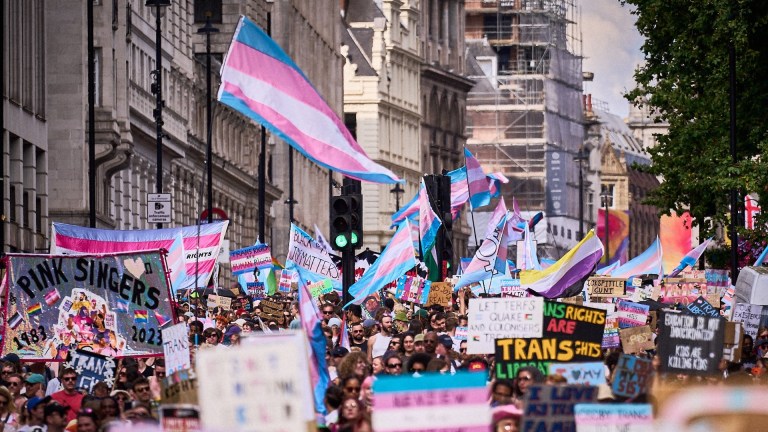The UK has now seen 15 years of relative decline, according to the Economy 2030 Inquiry report, with productivity growth at half the rate seen across other advanced economies.
Flatlining wages have cost the average worker £10,700 a year in lost pay growth while nine million younger workers have never worked in an economy with sustained average wage rises.
Slow growth and inequality that’s higher than any other large European economy has seen poor households in Britain are now £4,300 worse-off than equivalent French and German households and vulnerable to the cost-of-living crisis.
The aspirational inequality in the housing market is just one of the many examples of inequality in the report with millennials half as likely to own a home, and twice as likely to rent privately, as their parents’ generation.
But economist Bell argued that there’s “no excuse for fatalism” and laid out a plan to lift Britain out of its slump.
Instead of trying to turn the country into a German-style manufacturing powerhouse, for example, that means playing to Britain’s strengths.
Advertising helps fund Big Issue’s mission to end poverty
Leaders must build on Britain’s current standing as the second biggest services exporter in the world behind the US with a new trade strategy. That strategy should protect British manufacturing’s place in European supply chains while recognising that services have grown twice as fast as the good trade since 2005.
The new path back to prosperity should also include huge investment in public transport and housing for Birmingham and Greater Manchester to attract skilled workers and firms to boost productivity.
The country also needs investment with the UK experiencing the lowest investment across G7 economies over the past four decades. Resolution Foundation economists argue for public investment to rise to 3% of GDP and stay there to bridge the gap alongside investment in the net zero transition.
A new economic strategy should also have reducing inequality at its heart alongside boosting growth.
That includes boosting the minimum wage, statutory sick pay and job security to ensure every town has good work to offer.
Britain’s decision-makers should also raise both pensioner and working age benefits alongside wages in future after cuts since 2010 saw the incomes of poorer households fell almost £3,000 a year.
Advertising helps fund Big Issue’s mission to end poverty
The report also called for better, not just higher, taxes, including a tax on wealth. While the income from taxes is set to hit an 80-year high by the end of the decade, wealth has risen from three to over seven times the national income since the 1980s.
Taking action to boost growth, rescue public services and repair public finances could see the typical household 25% better off – pocketing an extra £8,300 a year – with poorer households having a 37% higher income.
Bell said: “That is a huge prize for a Britain that embraces a new economic strategy and is, in many ways, more normal.”
Stephen Machin, LSE professor of economics and director of the Centre for Economic Performance, said: “For decades, the UK has felt the effects of high inequality, hindered growth and economic stagnation. But this can change.
“The legacy of the inquiry needs to be a UK economy that delivers growth, and better, less unequal, standards of living in the rest of the decade and beyond.”
Do you have a story to tell or opinions to share about this? We want to hear from you. Get in touch and tell us more.
Advertising helps fund Big Issue’s mission to end poverty










